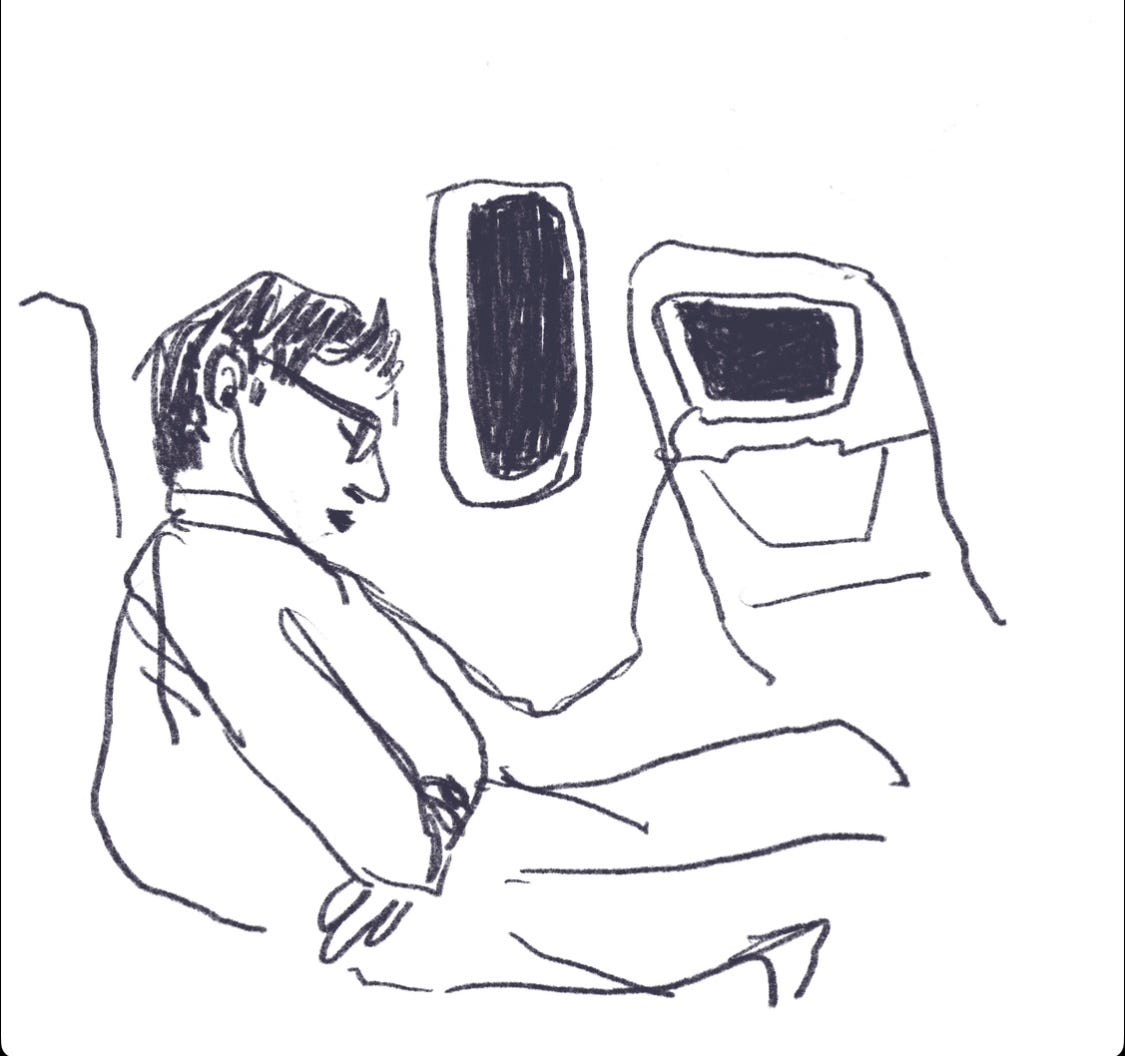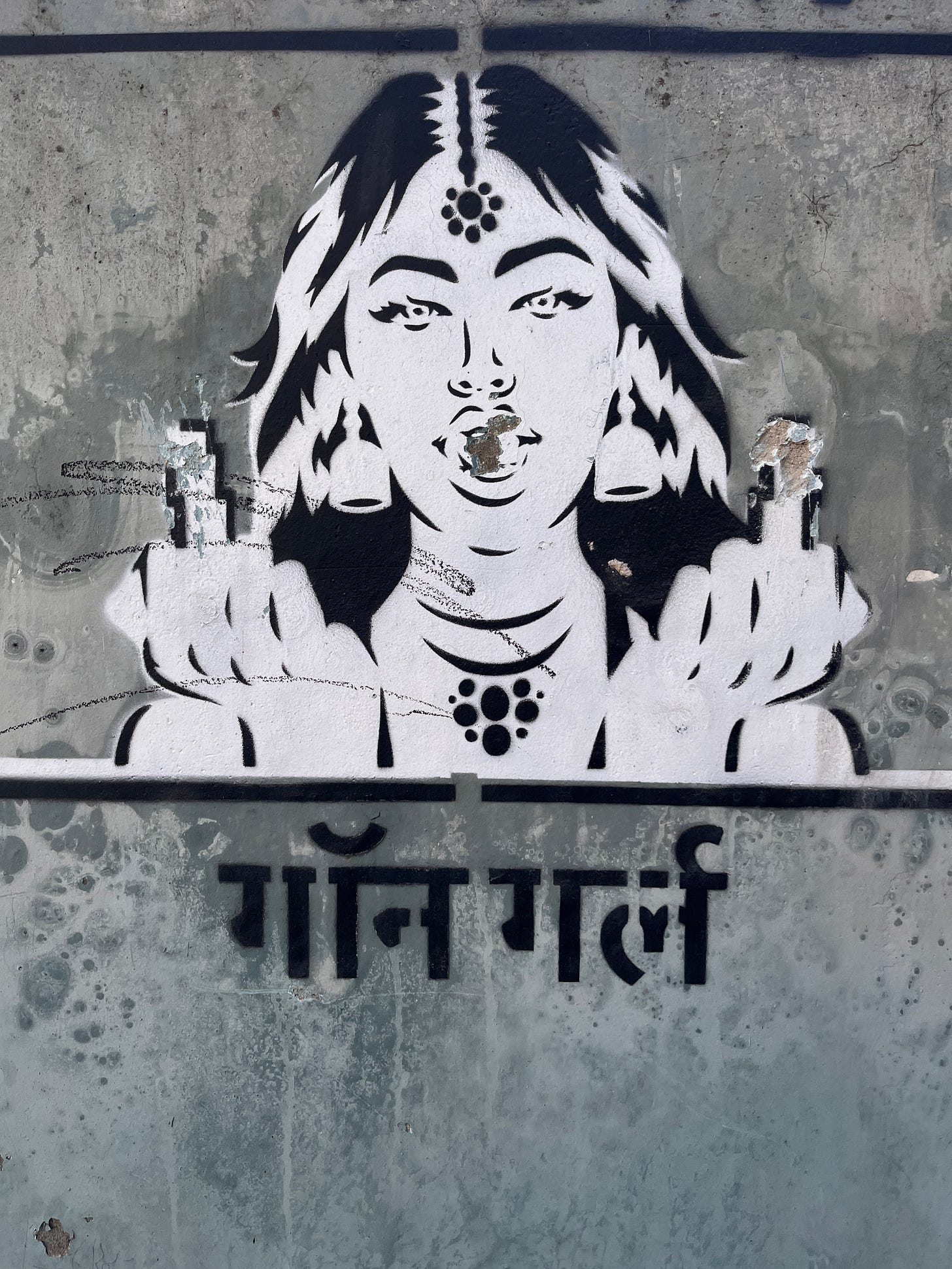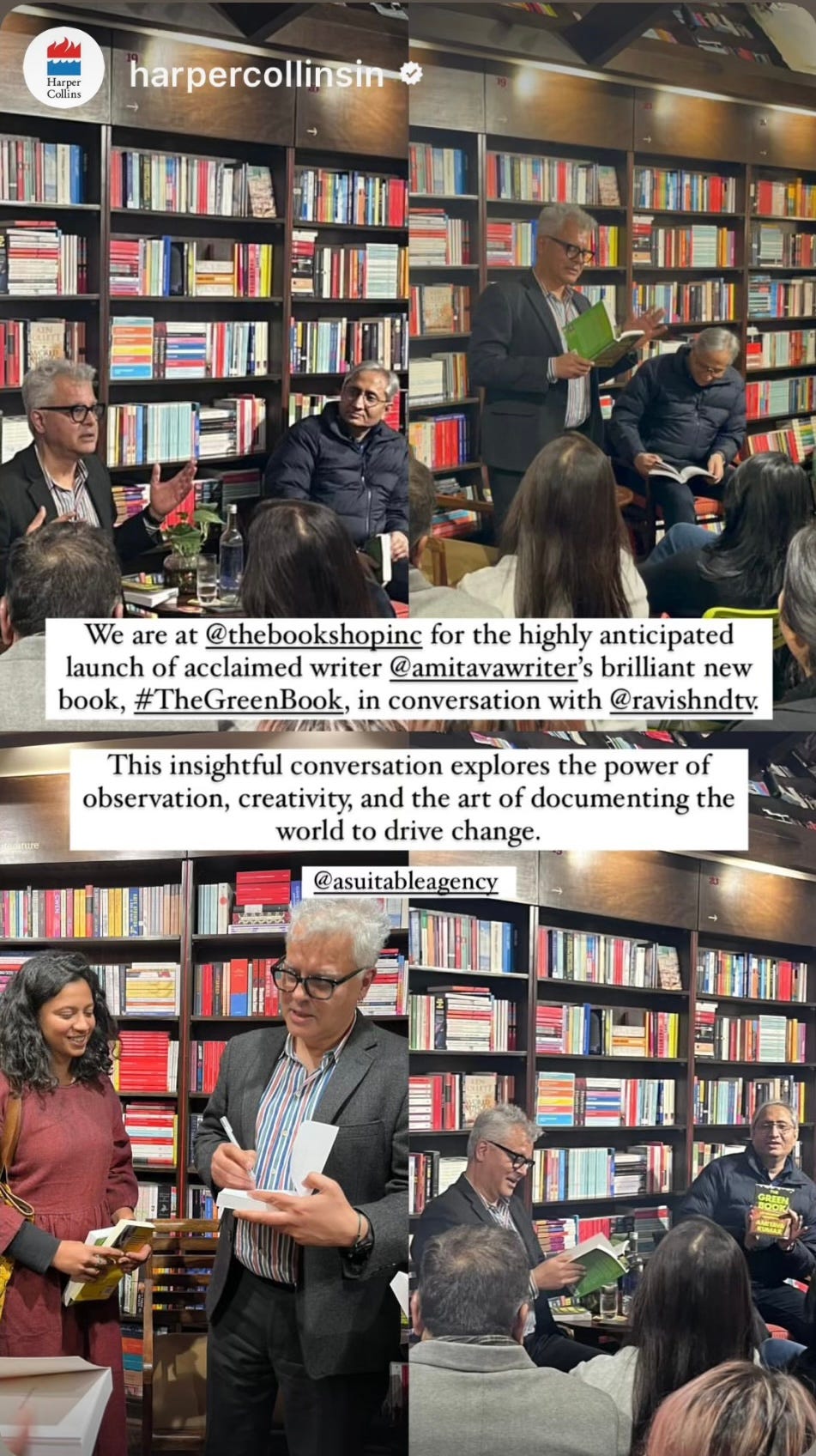Rules of Travel
The First Leg of a Book Tour in India
The young man next to you has been asleep for at least seven hours so far, but not you. You ask yourself why travel to India must involve a descent into the hell of economy travel. When you realize that it is not just your body but also your mind that is now numb, you check the interactive map provided on the inflight screen and you learn that the plane you are traveling in, a hopeless underachiever, has only covered a little less than half the journey. Another seven hours will pass. And now, the young man will wake up. He is fresh. He is full of smiles and thanks you for having saved some of the snacks that the flight attendant brought for him. He asks what is it that you do? He has noticed that you have been reading and writing. He doesn’t have time to read, he says, but he wants to know what you think of an app that reduces a novel to something like fifty words.
I’m in a state of mind where I would hate anything—after fourteen or fifteen hours of travel with little sleep I’m going out of my mind—but I’m pretty sure that even after days of sitting in a spa or swimming in the sea I would hate any app that did violence of this kind to any piece of fiction.
In Delhi, I lose my Airbnb virginity. I had never had the courage to try to find Airbnb accomodations. My wife has been an enabler in this regard, paranoid about having to stay in places that might shock or surprise you in unforeseen ways. But I have found a nice, cheap place in Hauz Khas village. Nearby is the fourteenth-century tomb of a Tughlaq ruler. On the walls of the tomb, in an effort to make their love last forever perhaps, lovers have inscribed their names. (I’m not free of jet-lag and must ask, why, why. Why Ravi and Sheela, why?) It is still morning, a brisk breeze is blowing, but the winter sun is warm, and then as I step around the historical monuments, I come upon young lovers seated in hidden places. I retreat in search of breakfast. What I can’t wrap my curmudgeonly head around are the names of the eating establishments I see in nearby alleys. “Imperfecto.” “By Terra—Conscious Cafe.” And, more oddly, “Fika.” This last name is borrowed from Swedish, I learn, and has something to do with taking “a moment to slow down.” But doesn’t fika resemble the word feeka from Hindi and Urdu? Feeka chai would translate as weak tea. I definitely don’t want weak tea. But maybe the people who flock to such places don’t have any truck with the vernacular. Welcome to global chic.
Talking of the vernacular, the words in Hindi above read as “Gone Girl.” I have no idea at all what the graffiti really means and what kind of cultural contestation this writing on the wall is supposed to suggest. But in the plane I had begun reading a book on writing by Patricia Highsmith and my taking this picture is like keeping a notebook. Here is the relevant section from Highsmith and maybe I’ll put this graffiti in a piece of writing in the future: “I highly recommend notebooks for writers, a small one if one has to be out on a job all day, a larger one if one has the luxuty of staying at home. Even three or four words are often worth jotting down if they will evoke a thought, an idea or a mood. In the barren periods, one should browse through the notebooks. Some ideas may suddenly start to move. Two ideas may combine, perhaps because they were meant to combine in the first place.”
There is a heartwarming book launch at The Bookshop in Jor Bagh. I sign copies of The Green Book and freely dispense advice on a writing life. My interlocutor is the popular, anti-establishment journalist Ravish Kumar; as both of us have our roots in villages in Champaran, we often embrace Hindi and even Bhojpuri in our conversations. (I have now discovered that someone has posted an exchange in Bhojpuri between the two of us on YouTube from a time when I was in my village. My father, who died last year, appears in the shadows in the video from my village.) Ravish tells the audience that we must keep finding words: if we have the words, we will be able to fight.
Only in India! I signed books around 6 AM at the airport on my way out of Delhi. 6 AM! This smiling group of employees was ready with copies of my trilogy of books of drawings and diary entries. Thank you, Naiyya Singh from HarperCollins, for arranging such events! Patricia Highsmith, in the book that I mentioned above, writes: “It is often up to the writer to bestir himself and think of ways to advertise his talent.” I’m grateful, however, to have the support both of my publishers and my agent in India, Hemali Sodhi from A Suitable Agency.
In a few days, I’ll report from the second leg of my journey!







I have read two of your books. And quote how you marry same girl thrice from your book "Husband of a fanatic" when my son was in the process of marrying an Eastern European girl as one of the solutions which which generally happens in these circumstances. But what I intend to say is different. I am not fluent on any language particularly so in my mother tongue, which I repent now. Okay enough about beating about the bush. You wrote "Fika" in Belgium is coffee while feeka in hindi and urdu is weak. Feeka in hindi is devoid of taste. Like feeeki chai is without sugar. In urdu it is not feeka. It is"pheeka" and "ph" is not "f". It often happens with sounds like "j" pronounce as "z" and "z" as "j". Like "javed" becomes "zaved" and "zaroori" becomes "jaroori". It hurts.
I think the graffiti refers to: ladki haanth se nikal gayi, or the Indianism: gone case hai